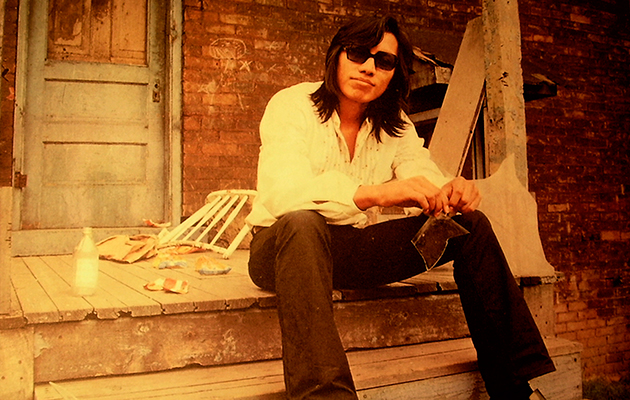Music is littered with artists who have fallen off the map, but there are few who have enjoyed a third-act career resurrection like Rodriguez. His two albums – 1970’s Cold Fact and its successor, 1971’s Coming From Reality – both bombed in the States, but went on to provide the soundtrack for the anti-Apartheid struggle in South Africa, where his lyrical folk songs about oppression, prejudice and corruption found a receptive audience. Rodriguez, meanwhile, quietly went about his business back in Detroit, working in construction and effectively retiring from the music scene, unaware until the late ’70s of his superstar status in South Africa and also Australia.
“I didn’t do any music,” he explains. “I was never on the circuit, or anything like that. I stayed pretty much out of it because there was nothing happening to me.” But in 2008, things began to change. The American label Light In The Attic re-issued Cold Fact and Coming From Reality the following year, and began the business of gradually re-introducing Rodriguez to the rest of the world – a process that has taken on its own extraordinary momentum since Malik Bandjellou’s film came out last year. Searching For Sugar Man – an alluring detective story about the hunt for Rodriguez in modern-day Detroit and the unravelling of his lost years – has now sold 24,000 copies in the UK on DVD and Blu-ray since its release four months ago. By comparison, It Might Get Loud, the Jack White/Jimmy Page/Edge documentary, sold 33,000 copies in its first year. The soundtrack, Rodriguez says, has sold 250,000 copies in America alone. He has played The Tonight Show With Jay Leno accompanied by a 25-piece orchestra, and reveals that Santana once sent 36 red roses to his dressing room, while on May 9, he received a Doctorate in Humane Letters from Detroit’s Wayne State University: “I don’t know if it means I’m smart or I’m educated, but it’s quite an honour.” Meanwhile, he’s been on the road for close to two years, and the venues have been getting bigger. He played Coachella in April, and on top of a slew of UK festival dates that include Glastonbury, he’s also sold out two nights at the Hammersmith Apollo. In October, he is scheduled by play the Barclay Center in New York, one of the venues chosen by The Rolling Stones to host their 50th anniversary celebrations last year.
How does it feel to find fame four decades later?
“I guess it feels as good as it would have felt if I was a success earlier,” he answers gnomically. “But now because it’s so many times over the success that anybody could even dream of, global success, I think that’s what changes the picture. In the 1970s, I wouldn’t have reached any part of the audience I reach now, with technology, and through the film.”
“He gets recognised now when he goes through airports,” says his daughter, Regan, who also manages him. “The South African fans are the strongest fans. We were in Canada, at CBC Radio, and a woman recognised him and she started crying. She almost got down on her knees, she could barely stand up, she loved him – this is her family’s biggest musical icon. They feel very strongly about him, about Apartheid and being part of the struggle for freedom. We really had to calm her down. It was Beatles-like.”
While it would seem churlish not to let Rodriguez pause to enjoy his late-flowering success, the question of what he’ll do next is intriguing. Speaking to Rodriguez, you get the impression that he’s an amiable old hippy radical, and he’ll do what he wants in his own time. His voice has a soft, slightly stoned drawl to it, while his speech occasionally lapses into a kind of 1950s hipster patois. Concert-goers are “steppin’ out”, the junior members of his audiences are “young bloods”. He’s lived in the same house in Detroit’s lower-middle-class Woodbridge neighbourhood for 40 years, with “a wood-burning stove,” recalls Steve Rowland, who produced Coming From Reality. “He’s a true libertarian. He doesn’t believe in the gas company and the electric company, he thinks they’re taking the piss out of everybody.” Regan admits her father “didn’t have a phone for a while. He’s not into that kind of technology.” Critically, though, at 70, Rodriguez is “not a real healthy guy,” explains Rowland. “He’s got joint problems, and also he’s got glaucoma and he’s practically blind.”
Wymond Miles, from San Francisco’s the Fresh & Onlys, who were Rodriguez’ West Coast backing band from 2008 to 2012, remembers being shocked at their first meeting: “I didn’t realise how physically frail in some ways he was. But when he took off his coat, he was ripped. He had bulging muscles and veins, in his late sixties, from all the labour work he’d done.”


